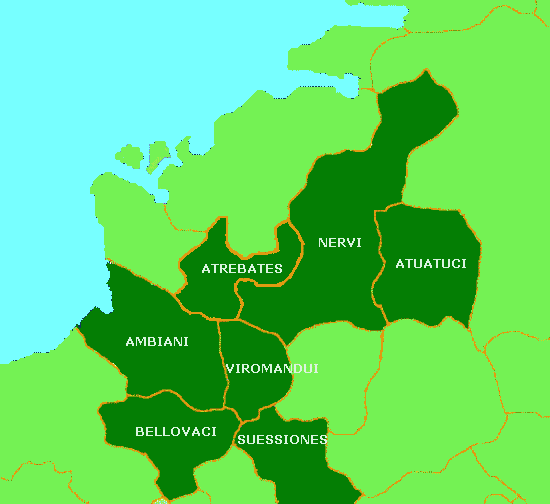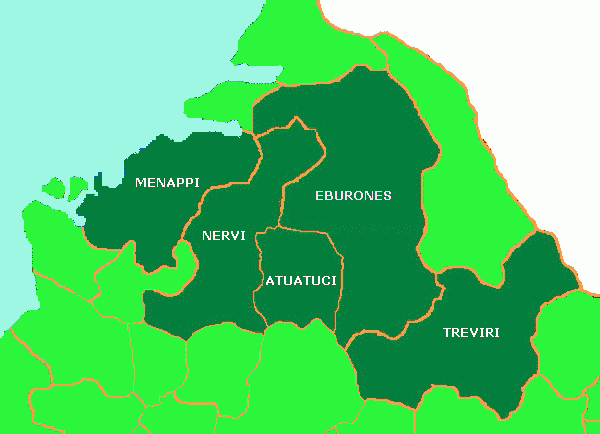58 BCE.
J Caesar appears in the country of the Belgae. The Ambiani, Atuatuci, Bellovaci, Nervi and the Viromandui unite
under the leadership of the Suessiones in the first Belgic confederation.

57 BCE.
Caesar defeats the coalition after battles on the
Aisne and the Sambre and captures the oppidum of the
Atuatuci. Slavers with the Roman army buy 53,000 Atuatuci and 55,000 Nervi captives with 597
"Senators". Massacre of the Bellovaci continues "until there was no light to see".
56 BCE. Caesar attacks the Amoricans, but the Morini and the Menapi remain in arms and check the Romans among their woods and marshes.
55 BCE. Usipiti and the Tencteri cross the Rhine and attempt to settle in the territory of the Atuatuci. Caesar destroys them and crosses the Rhine in a show of force. His first, abortive, excursion to Britain is followed by conflict with the Morini. Labienus defeats the Morini.
54 BCE. Second excursion to Britain and final withdrawal. Serious rising by the Eburoni led by their chief Ambiorix. Sabinius and Cotta leave their winter camp and are killed with fifteen cohorts in an ambush. Cicero, his winter camp encircled by the Nervi, is saved by Caesar at the last minute.
53 BCE.
Labienus crushes a rising by the Treviri that threatens to
include the Senones and the Carnutes. Although their chief Indutiomarius is killed, the Treviri take up arms again joining the Nervi, the Atuatuci, the Menapi, the Eburoni and some German tribes from the left bank of the Rhine in an alliance.
Caesar
crushes this alliance and crosses the Rhine again to weaken the
Germans.
and some German tribes from the left bank of the Rhine in an alliance.
Caesar
crushes this alliance and crosses the Rhine again to weaken the
Germans.
52 BCE. Vercingetorix leads a general rising in Gaul. The Belgic tribes hold back. Only 2,000 men of the Bellovaci, are sent with Commios in his attempt to relieve Alesia rather than the 10,000 he expected.